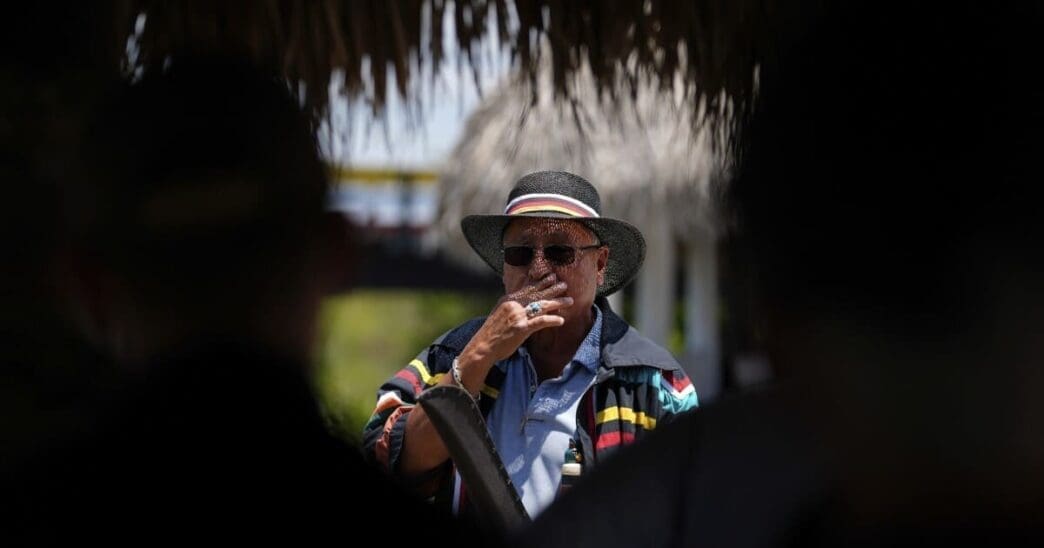In a stark reality of climate change and ecological degradation, the Miccosukee Tribe is at the forefront, battling to safeguard their ancestral home—Florida’s Everglades. Historically resilient, they now confront new challenges as engineering projects and climate shifts threaten their survival.
The Everglades, once a vast and thriving ecosystem near Miami, have transformed dramatically over time. Tribal Council Chairman Talbert Cypress recalls a past where lower water levels allowed for fishing, swimming, and exploring the forests. Today, the landscape is characterized by extremes—prolonged droughts and floods that threaten sacred tree islands and diminish native wildlife.
Decades of development and agricultural projects have reduced the Everglades to half its size, disrupting the delicate ecosystem that has sustained the Miccosukee for centuries. Water mismanagement has led to fires, floods, and pollution, further endangering their cultural and community sites. Climate change, fueled by fossil fuel activities, remains a significant threat.
Despite a historical reticence towards external engagement, recent years have seen the Miccosukee take on leadership roles in conservation efforts. They have effectively halted oil exploration plans and secured co-stewardship agreements for South Florida’s landscapes. Their initiatives include reconnecting the western Everglades, controlling invasive species, and reintroducing native wildlife.
While a new report calls for more consistent collaboration with the Miccosukee and Seminole tribes, the tribe’s past informs their activism today. Historically, they have survived wars and environmental changes by adapting and protecting their land. The Western Everglades Restoration Project represents a significant effort to rectify past damages by aiming to clean polluted waters and enhance flood protection.
Concerns remain regarding the project’s potential shortcomings. The removal of a second engineered wetland from the proposal, due to land ownership issues and geological concerns, raises questions about water quality and quantity improvements. Yet, tribal leaders express cautious optimism about the transformative potential of the restoration efforts.
The tribe’s victory against the National Park Service’s wilderness designation reflects their commitment to preserving their traditional ways of life and access to ancestral lands. Such designations threatened to impede their way of life, but concerted campaigns and support from government officials helped protect their rights.
Tribal elders like Michael John Frank emphasize the importance of staying connected to the land, passing on wisdom and cultural practices to the next generation. Younger members, such as Hector Tigertail, are actively involved in conservation efforts, marrying traditional knowledge with modern techniques to preserve the Everglades.
The Miccosukee’s dedication to environmental stewardship is a testament to their enduring bond with the Everglades. As they navigate challenges posed by climate change and development pressures, their innovative approach to conservation offers a blueprint for sustainable coexistence with nature.
Source: Abcactionnews






